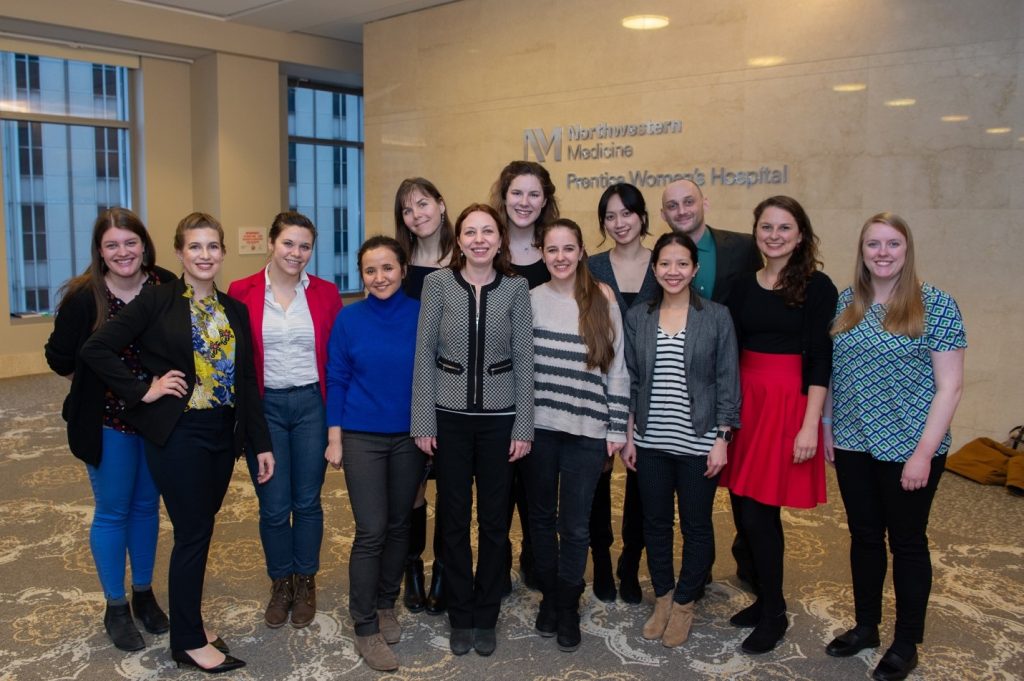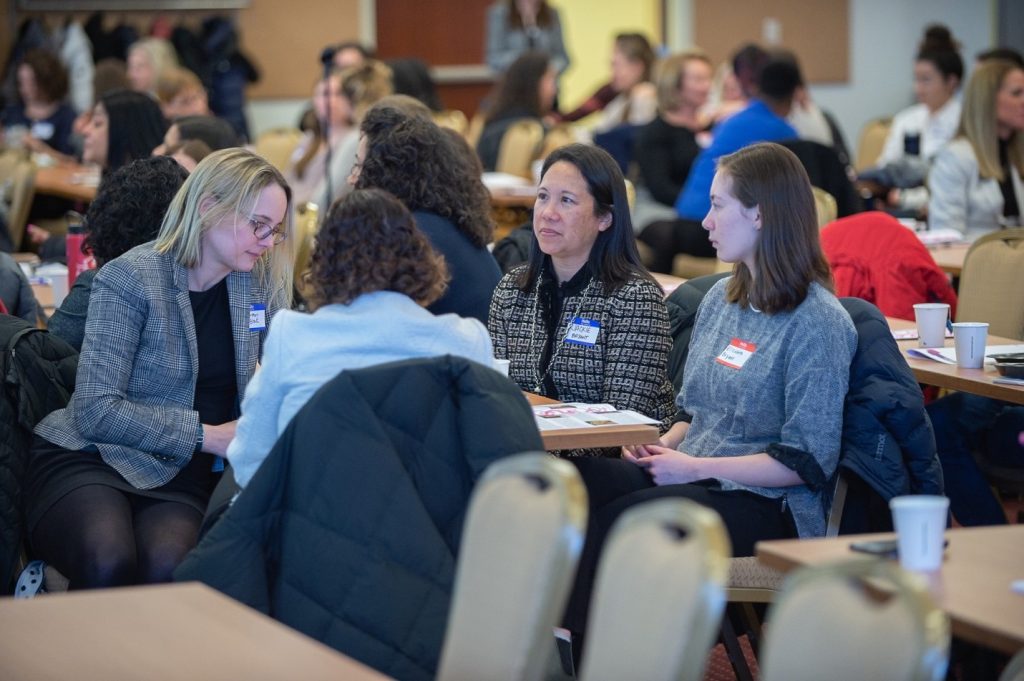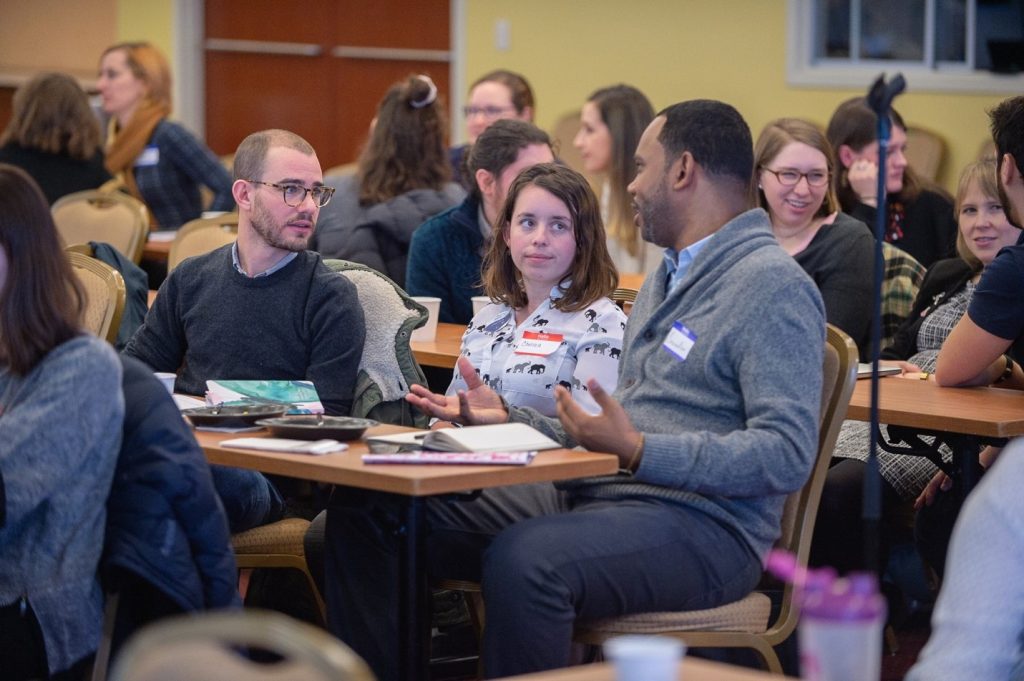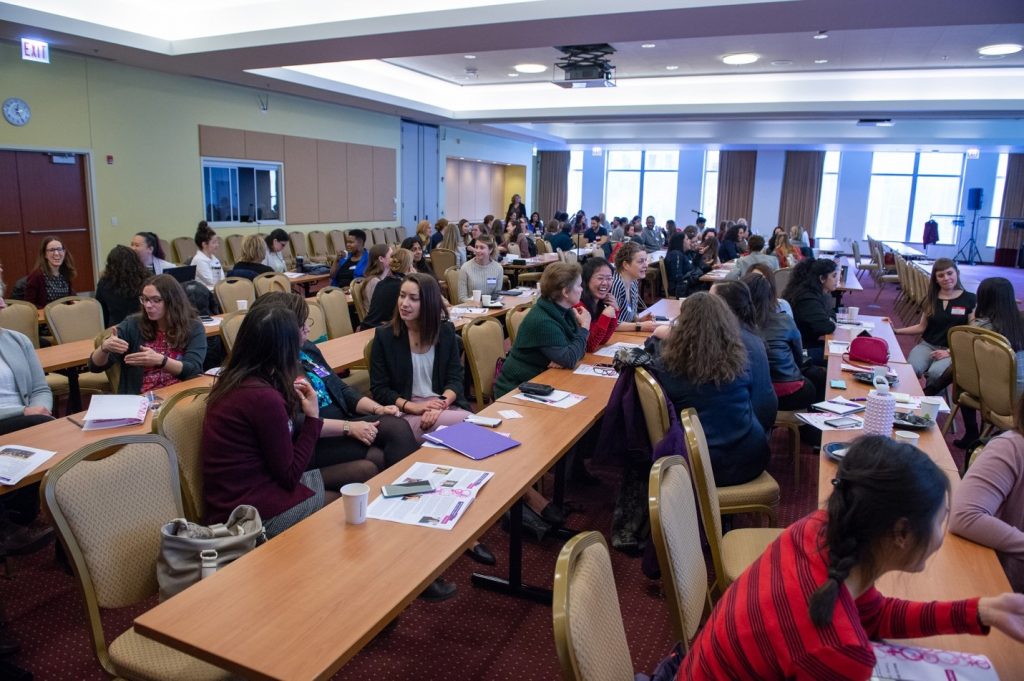Our 2nd annual Chicago Women in STEM Symposium took place on the International Women’s Day, March 8th, 2019 at Northwestern University – Chicago campus. The event gathered more than 100 graduate students, postdocs, faculty, staff, and professionals from universities across the Chicago area. Over the course of half the day, the theme of the event, “Implicit biases in STEM,” was dissected through a very well-received interactive workshop, a series of stimulating short talks from women leaders in STEM and medicine, and an illuminating keynote lecture about problems and potential solutions to implicit biases. One attendee specifically stated, “I felt so empowered after this meeting. It was exactly what I needed.” In fact, in our post-event survey, more than 80% of the participants reported high satisfaction with the symposium overall and more than two-thirds agreed that the event, and the workshop in particular, significantly increased their confidence in interrupting incidences of bias against themselves and others.
The one take home message from the symposium is that implicit biases manifest as an obstacle to gender diversity at many levels: in women’s working conditions, in terms of their under-representation at the higher echelons, and in research funding processes. They are perpetuated by both men and women whether they are aware of it or not. Therefore, becoming actively aware of our biases will help us overcome the limitations that those biases bring into our lives. Furthermore, a supportive network by colleagues and family is one of the highly recommended approaches to combat against imposter syndrome, a by-product of implicit biases. For example, Dr. Shikha Jain, one of the invited speakers, shared some of the scrutiny she faced at her earlier career stage and the appreciation she has for her father who has never ceased to support and believe in her. Finally, it is equally important to remain persistent despite adversity in academia and STEM. Drs. Ropella and Ka Yee Lee’s stories encouraged us all to be aware of our strengths and weaknesses and continue to nurture emotional intelligence. For instance, Dr. Ka Yee Lee suggested we might benefit from being a little more open with others about our losses by compiling an “alternative” CV of failures, which could inspire a colleague to shake off a rejection and serve as a reminder that our response to failure is a key part of being a scientist.
It has been increasingly recognized and agreed upon that women are under-represented in STEM and Medicine, particularly at advanced career stages and leadership roles. Given the strong evidence that unconscious bias is a driving force behind ongoing gender disparities in STEM, it is our hope that this symposium and many more in the future, together with our ongoing interdisciplinary mentoring network (STEM Circuits), will help increase public appreciation for women’s potential and continue spreading the sense of empowerment and solidarity among women in STEM.
written by Thao Pham





